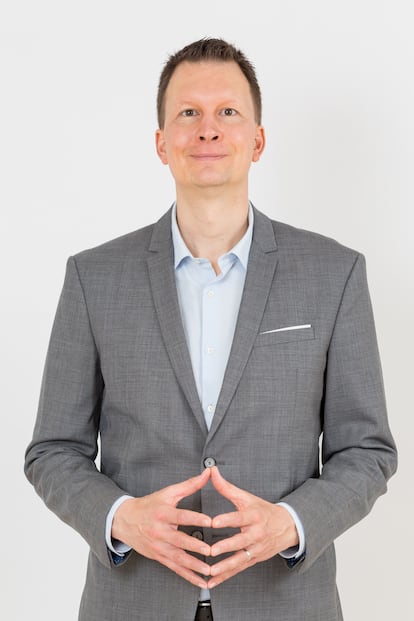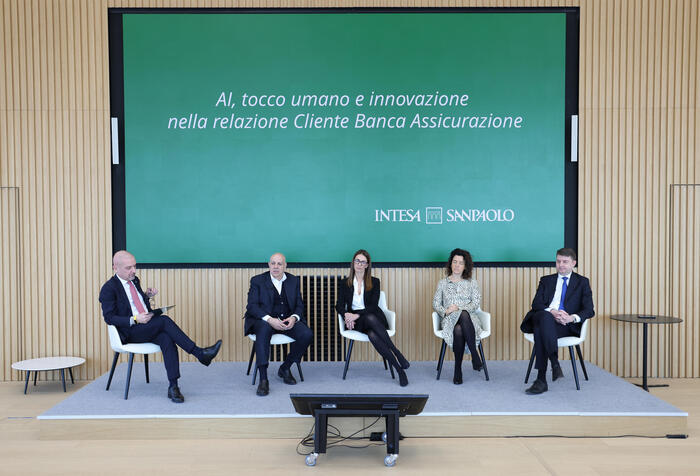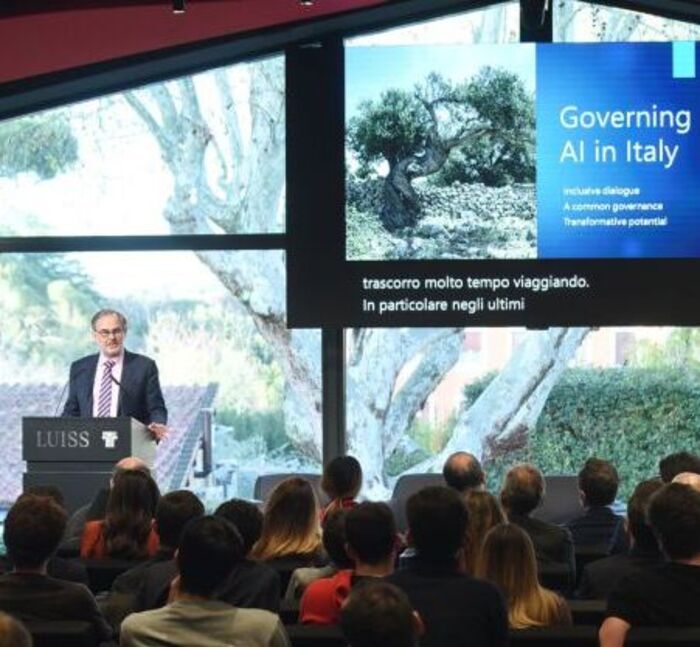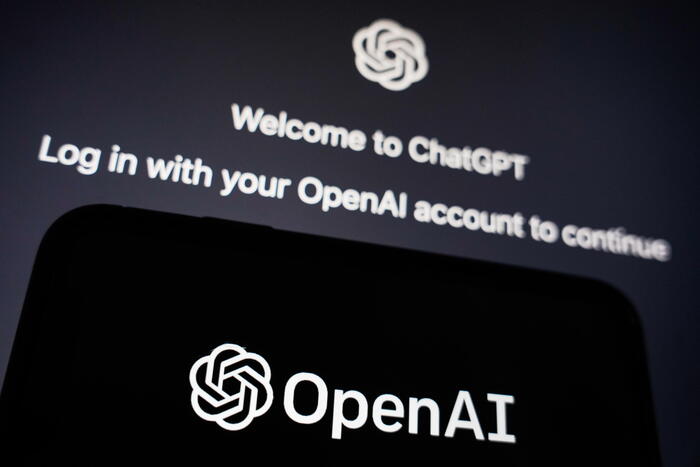Lasse Rouhiainen (Espoo, Finland; 42 years old), writer, consultant and expert in artificial intelligence, CLICKROOM PHOTOGRAPH / Joaquín Reina
Artificial intelligence does not finish seducing Spanish companies. According to a report by the European Commission, 51% of SMEs do not use this technology nor do they plan to do so in the immediate future. However, public efforts to reverse this situation are going further. The creation of the secretariat of State for artificial intelligence or a specific investment plan, endowed with 600 million euros, exemplify the Government's intention to take seriously an innovation called to dominate the economic activity of this decade.
Lasse Rouhiainen (Espoo, Finland; 42 years old), writer, consultant and expert in artificial intelligence, knows the potential of this technology. Finnish by birth, but settled in Alicante for almost 20 years, he achieved fame and recognition with the book
Artificial Intelligence: 101 Things You Should Know About Our Future Today
. Now it is back in fashion due to the launch of
Artificial Intelligence for Business
(Anaya).
As he explains through a video call, Spain is facing an unprecedented opportunity to incorporate artificial intelligence into its productive fabric.
Take the leap towards projects that mark a before and after.
“Culturally it has been difficult to invest in intangibles.
The companies have preferred the brick or the tourism, activities that can be seen ”, he maintains.
Even if we look specifically at technology investment, Rouhiainen says that the money almost always ends up in the same departments and products.
And artificial intelligence tiptoes through these plans.
“It is easier to bet on cybersecurity than to buy a program and it is a fixed element.
Artificial intelligence requires passing pilot projects.
You have to move the initiatives, believe in them and evolve them ”, he argues.
Lasse Rouhiainen (Espoo, Finland; 42 years old), writer, consultant and expert in artificial intelligence.CLICKROOM PHOTO / Joaquín Reina
Ethics have become an increasingly relevant aspect when artificial intelligence comes onto the scene.
Society has shown its misgivings about algorithms with the ability to determine their behaviors.
Companies and engineers also polish these automated systems, although there is still a long way to go.
It is difficult to eradicate discrimination, biases still in force in many of the technological solutions.
It is not even easy to agree on how to tackle the problem, although Rouhiainen is resounding: "It has been seen that self-regulation is not the way for artificial intelligence, there are the abuses of Facebook or Google."
In his words, without the disappearance of black boxes, biases and discriminations, it will be impossible to advance to the next level in the use of artificial intelligence.
The ethical violation limits the possibilities and characteristics that it offers.
Rouhiainen speaks of three essential characteristics if we are to squeeze the potential of this technology: transparency, fairness and respect for privacy.
If an algorithm fails to comply with any of them, the initiatives will continue to run into a wall that will limit their progress.
“Anyone's life can be improved with artificial intelligence.
My fear is that it does not reach all people.
Today, the percentage of people involved and knowledgeable about technology is very low in general terms ”, he highlights.
Creation of a 'data office'
Without data there is no artificial intelligence and vice versa. For this reason, Rouhiainen appeals to the urgent need for Spain to equip itself with a
data office
- included in the plan presented by the Government last year. It would serve as a source, a solid base, for all projects that require this type of information. It would help centralize and channel initiatives regardless of their knowledge of technology. “It is the opportunity of the century for Spain. If everything that the Secretary of State has enunciated is applied and we add European funds, the leap forward is undeniable, ”he says.
Although not directly related, the data office would facilitate the creation of new businesses based on artificial intelligence. New markets would emerge and energize the existing ones. Something that, in the words of Rouhiainen, would open the door to the export of this technology to third countries, especially Latin America. If we add an ambitious educational program, in the style of the one developed in Finland for decades, Spain would achieve the squaring of the circle. “Artificial intelligence is the new industry, with the ability to sell it to importing regions. We need more examples of how to use
big data
for each sector; and there artificial intelligence is essential ”, he specifies.
If in Spain the leap in artificial intelligence to which Rouhiainen appeals took place, both young people and entrepreneurs would promote projects more easily. Not to mention the modernization to which education and technology-demanding sectors, such as industrial or healthcare, would be forced. To achieve this, it is necessary to look at other tools and achieve a country consensus that does not change the established plans each legislature. “I don't see Spain creating the new Google, but it doesn't need it either. Young people have to learn how artificial intelligence and
blockchain work
. They would eliminate intermediaries. They would reduce the power of platforms like Booking and Tripadvisor and would develop another type of tourism ”.
You can follow EL PAÍS TECNOLOGÍA on
and
.









